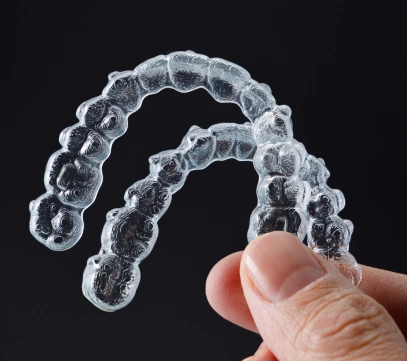
Ever catch yourself clenching your jaw or waking up with sore teeth? You may have bruxism—the medical term for teeth grinding and jaw clenching. It’s more common than you might think and can affect both adults and children.
What Causes Bruxism?
- Stress or anxiety
- Sleep disorders (snoring, sleep apnea)
- Misaligned teeth or bite
- Lifestyle factors like caffeine or alcohol
Symptoms of Bruxism
- Jaw soreness or tightness
- Frequent headaches, especially in the morning
- Worn or chipped teeth
- Tooth sensitivity
- Clicking or popping in the jaw
Why It Matters
Bruxism can wear down teeth, strain jaw muscles, and even lead to TMJ (temporomandibular joint) problems if left untreated.
How Bruxism Is Treated
- Nightguards or mouthguards: Custom-made appliances protect teeth while you sleep.
- Bite adjustments: Correcting misalignment can reduce grinding.
- Stress management: Relaxation techniques or therapy can help reduce clenching.
- Lifestyle changes: Limiting caffeine or alcohol, and treating underlying sleep issues.
When to See a Dentist
If you notice jaw pain, tooth wear, or nighttime grinding sounds, talk to your dentist. Early treatment can prevent damage and protect your smile.
Concerned about grinding or clenching? Call 916-315-3558 or request an appointment online at www.rcdentistry.com to learn how we can help.


